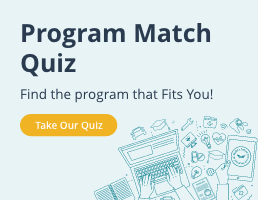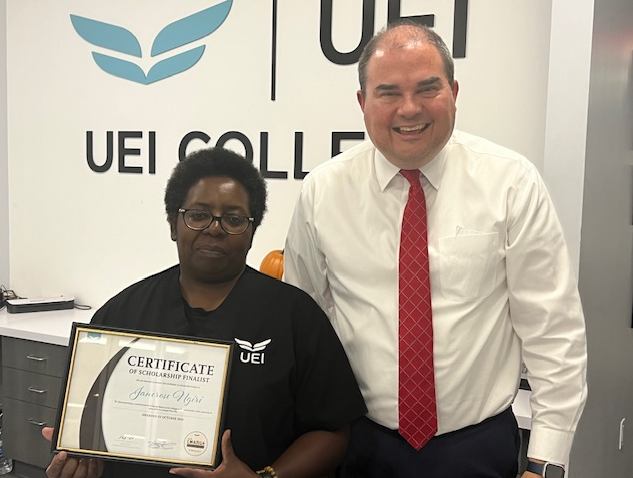What Does a Medical Billing and Coding Program Teach You?
| Update: September 04, 2024
A career in medical billing and insurance coding provides flexibility, but it takes proper training to get started. Medical billing and insurance coding professionals are responsible for ensuring patient information is entered into medical software correctly and can be used for submitting insurance claims, creating invoices, and ensuring payment. This takes training to learn software, medical terms, medical codes, and proper billing processes. Completing a Medical Billing and Insurance Coding program will make you eligible for employment as a Claims Examiner, Insurance Company Reviewer, Medical Insurance Claims Processor, Health Information Clerk, Health Information Specialist, Medical Records Clerk, or Medical Records Analyst. If you’ve been wondering what exactly you’ll learn in a Medical Billing and Insurance Coding program, read on to find out.
If you're interested in a career in the Medical Billing and Insurance Coding field, consider enrolling in UEI College's Medical Billing and Coding Program. The program can be completed, and you can earn your diploma in as little as 10 months, placing you on the fast track to beginning a new and rewarding career.
What Does a Medical Billing and Insurance Coding Program Teach You?
Medical Billing and Insurance Coding programs can differ significantly from one college to the next. UEI’s Medical Billing and Insurance Coding program is designed to give you hands-on experience, covering a wide variety of topics you’ll need to know to get started in a career in Medical Billing and Insurance Coding. Our courses include:
MB 110 Insurance Billing
This course will give you a better understanding of how to submit insurance claims for a variety of major providers, including Group Plan Insurances, PPOs, Worker’s Compensation, and Federal and State Disability. You’ll become familiar with the most popular billing software programs used daily by those in the field and be able to practice using these forms and software. This course also covers HIPAA training and the basic prefixes, suffixes, and abbreviations for human anatomy.
MB 120 Insurance Coding Principles
This course will introduce you to the three coding manuals used by medical billing and insurance coding professionals. You’ll learn how to translate diagnoses and treatments into codes used to bill insurance companies accurately. You’ll continue to use the most popular billing software for hands-on practice. We’ll also help you learn common medical terms, abbreviations, and symbols that you might encounter on a patient’s records.
MB 130 Medical Laws and Ethics
This course covers the laws and ethics of the medical field, including professional behavior, confidentiality, doctor-patient relationships, malpractice, and breach of contract. We’ll also help you become CPR certified and teach you about the lymphatic, respiratory, and cardiovascular systems. Students will learn the medical codes for billing treatments of these systems and will practice with medical billing software.
MB 140 Documentation and Records
In this class, students will learn all about Electronic Health Records and the software used to keep patient records. You will learn all about the medical documentation process. We’ll also cover the skeletal, muscular, eye, ocular adnexa, auditory, and operating microscope and the medical codes associated with these systems.
MB 150 Medical Billing and Collections
This class will go into more detail about the laws governing the collection process. Professionals in the Medical Billing and Insurance Coding field are responsible for checking for authorization for treatment, submitting insurance claims, disputing denials, and setting up payment plans for patients. You will learn how to verify insurance information, perform pre-admission authorizations, and follow up for billing. You will practice handling payment issues, tracking reimbursements, and setting up collections plans. This course also covers the codes associated with radiology, nuclear medicine, inpatient hospital services, and ICD-10 principles.
MB 160 Insurance Practices
This course will teach you more about the insurance claims forms for Medicare, Medicaid, The Blue Plans, Private Insurance, Managed Care Plans, and the TRICARE and CHAMPVA programs. You’ll continue to practice using the most popular billing software to process these claims. You’ll also learn the codes for diagnoses and treatment of the digestive system, the urinary system, and the male reproductive system.
MB 170 Medical Office Procedures
Being in the Medical Billing and Insurance Coding field requires a level of comfort working in an office setting, making copies, handling files, and managing phone calls. This course will cover all those administrative functions and procedures that ensure patient records are kept secure. You’ll also learn the endocrine, nervous, obstetrics, and female reproductive systems and how to code for these systems.
MB 190 Externship
The final course in all of UEI’s healthcare programs is an externship. During this time, we’ll match you with a workplace in your community that will help put your knowledge to practice. You’ll have the opportunity to learn from those currently in the field and do the job you’ve been training to do. This real-life experience will look great on your resume and will help you gain confidence in your skills.
How Long Does it Take to Complete a Medical Billing and Insurance Coding Program?
The length of a Medical Billing and Insurance Coding program can vary greatly from a matter of weeks to years. UEI’s Medical Billing and Insurance Coding program can be completed in as few as 10 months. Once you begin to gain experience, you’ll find plenty of opportunities to advance your career with additional certifications. Imagine entering a new, rewarding career field in less than a year!
No High School Diploma?
We Have Options!
Enroll at UEI To Begin a New Career in the Medical Billing and Insurance Coding Field
UEI offers flexible day and evening schedules with hands-on experience to prepare you for a medical billing and insurance coding career. We offer courses during the day or evening with live lectures, quizzes and assignments online. Experienced instructors will teach you the ins and outs of the Medical Billing and Insurance Coding field with hands-on practice.
If you’re looking to make a career change quickly but have been lacking the support and resources to do it, give us a call today. We’ll walk with you every step of the way to learning Medical Billing and Insurance Coding.
Consider Enrolling at UEI To Start a New Career in the Medical Billing and Insurance Coding Field
UEI College makes it easy to get started with your training in Medical Billing and Insurance Coding. We offer ongoing enrollment, which allows you to start your training as soon as you are ready. Our admissions staff will walk with you every step of the way from the moment you step onto our campus. We invite you to take a tour, meet with our financial aid specialists and see if our school is a good fit for you. Financial aid is available for those who qualify. Even if you do not have a high school diploma, we have options to help you achieve a career you can be proud of.
Our flexible schedules make it possible to attend classes during the day or evening and complete assignments online from any device. All of our programs are designed to engage students through hands-on learning that provides real-life experience. In addition, our Career Services Specialists will help provide the resources and tools to find you an entry-level position as soon as you graduate.





